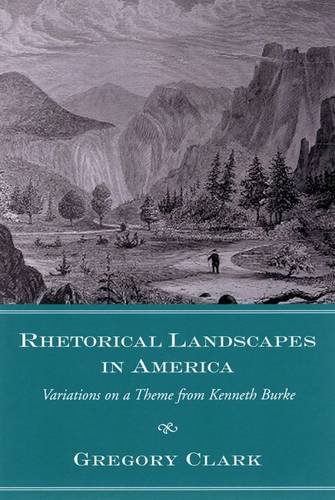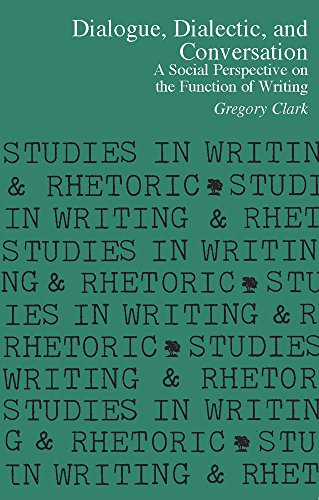Education
He also teaches in the Doctor of Philosophy program in rhetoric and composition at.



(At the same time a reading of Kenneth Burke and of touris...)
At the same time a reading of Kenneth Burke and of tourist landscapes in America, Gregory Clark's new study explores the rhetorical power connected with American tourism. Looking specifically at a time when citizens of the United States first took to rail and then highway to become sightseers in their own country, Clark traces the rhetorical function of a wide-ranging set of tourist experiences. He explores how the symbolic experiences Americans share as tourists have helped residents of a vast and diverse nation adopt a national identity. In doing so he suggests that the rhetorical power of a national culture is wielded not only by public discourse but also by public experiences.
http://www.amazon.com/gp/product/1570035393/?tag=2022091-20

( This book articulates an ethics for reading that places...)
This book articulates an ethics for reading that places primary responsibility for the social influences of a text on the response of its readers. We write and read as participants in a process through which we negotiate with others whom we must live or work with and with whom we share values, beliefs, and actions. Clark draws on current literary theory, rhetoric, philosophy, communication theory, and composition studies as he builds on this argument. Because reading and writing are public actions that address and direct matters of shared belief, values, and action, reading and writing should be taught as public discourse. We should teach not writing or reading so much as the larger practice of public discourse—a discourse that sustains the many important communities of which students are and will be active members.
http://www.amazon.com/gp/product/0809315793/?tag=2022091-20
He also teaches in the Doctor of Philosophy program in rhetoric and composition at.
His project is both theoretical and critical, developing concepts of how influence works that he then uses to study capacities for influence inherent in American cultural practices. His theoretical project centers on an ongoing exploration of rhetorical aesthetics: ways that rhetoric works through aesthetic means and ways that aesthetic encounters do rhetorical work. Clark"s primary resource for this work is the work of Kenneth Burke.
His critical project has examined early American literature and oratory, American landscapes, and now is focusing on American music in order to trace ways the experiences they provide shape American identity.
Clark is Professor of English at Brigham Young University where he has led the American Studies and University Writing programs and chaired the English Department. He teaches courses in rhetorical theory, composition theory, and rhetoric and leadership.
In January 2014 he became President-Electronics In 2011 Gregory Clark was appointed as the inaugural fellow of the National Jazz Museum in Harlem.
In 2012 he was awarded the University Professorship at Brigham Young University.
(At the same time a reading of Kenneth Burke and of touris...)
( This book articulates an ethics for reading that places...)
Gregory Clark has been a leader in the Rhetoric Society of America, serving as a member of the Board (1996-1998), Editor of Rhetoric Society Quarterly (2000–2007), and Executive Director (2008-2012).
